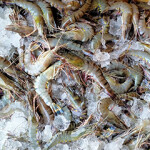Massachusetts Attorney General pushes for right whale regulations, lobstermen feel left out

The Attorney General for the Commonwealth of Massachusetts, Maura Healey, has sent a letter to the coalition of New England governors (NEG) and Eastern Canadian Premiers (ECP) pushing for greater regional effort to prevent more North Atlantic right whale deaths.
The whales, one of the most endangered whale species on the planet, have been the subject of an ongoing debate over what steps need to be taken by fishermen – particularly in the lobster industry – to prevent entanglements, which have led to a series of deaths. Through several meetings of the Atlantic Large Whale Take Reduction Team – comprised of industry, nonprofit, and government representatives – Massachusetts agreed to a 30 percent cut in the number of vertical buoy lines by lobstermen, as well as using ropes with a lower 1,700 pound breaking strength.
Attorney General Healey’s letter asks other governmental bodies in the region to step up their efforts to protect the right whales.
“I ask the NEG/ECP issue a Resolution committing to measures that significantly expand current right whale protections by further reducing the risk of ship strikes and fishing gear entanglements in our waters, and to act immediately on that Resolution,” Healey wrote.
The letter, dated 4 September, came on the heels of an announcement by the Maine Lobstermen’s Association that the organization was withdrawing its support of the right whale take reduction agreement. That agreement was what led to Massachusetts’ commitment to reduce vertical lines by 30 percent, and would have had Maine lobstermen reduce their lines by 50 percent.
The Maine Lobstermen’s Association argued that errors in NOAA’s data, coupled with how late in the meeting process that the data was given to stakeholders, is what led to the eventual withdrawal of the agreement.
“Substantive errors in NOAA Fisheries’ (NMFS or the Agency) data and its last-minute announcement of a U.S. risk-reduction target that was fully assigned to the Northeast lobster fishery led the TRT to work with an erroneous assumption about the relative risk to North Atlantic right whales from that fishery and discount the relative risk posed by other sources,” wrote Patrice McCarron, the executive director of the MLA, in a letter to Assistant Administrator for NOAA Fisheries Chris Oliver.
So far, elected representatives in Maine seem to have the lobstermen’s back – three of the state’s four federal representatives have come out against the proposal to reduce vertical lines, and the state’s governor, Janet Mills, threatened to defy the new rules, which she called “absurd federal overreach.”
For Massachusetts lobstermen, however, federal support for any changes to the current proposal is absent.
“I think the only difference I see between Maine and Mass. is Maine’s got political support, and Massachusetts has none at the federal level,” Massachusetts Lobstermen Association President Arthur “Sooky” Sawyer told SeafoodSource.
Massachusetts has already taken measures to prevent conflicts between lobstermen and right whales – the state has a 100 percent fishery closure over 3,000 square miles of ocean between February and April, and that closure can be extended depending on whale movements. According to Sawyer, lobstermen in the state have a lot of the same concerns that the Maine lobstermen did.
“I got a lot of flack when I got home about what was agreed upon to,” Sawyer, who is on the take reduction team that reached the agreement," he said. “I feel the same pressure that Patrice and Kristan Porter [Maine Lobstermen Association president] feel in Maine.”
Sawyer said a lot of lobstermen, himself included, identify with McCarron’s assertion that the data came very late, and that the decision was hurried. He added that at the time of the meeting, it felt like either a decision had to be made, or the federal government was going to make a decision on its own.
“It was basically 'you better come up with something you like,'” he said.
Most fishermen, he added, feel that the lobster industry has a minor impact on the whales compared to other fisheries, and that regulations targeting lobstermen miss the mark. Sawyer said he’s seen “the rope as much as anybody has,” and that most of the entanglements involve rope that isn’t used by the lobster industry.
“It’s Canadian snow crab rope, even some of the lobstermen up there are blaming it on the snow crab,” he said.
Despite the objections, the industry in Mass. hasn’t had the same level of support from federal representatives, he said.
“I don’t believe we’re going to sway any political clout down here,” Sawyer said. “We don’t get that kind of support in Massachusetts.”
Photo courtesy of Shutterstock






Share